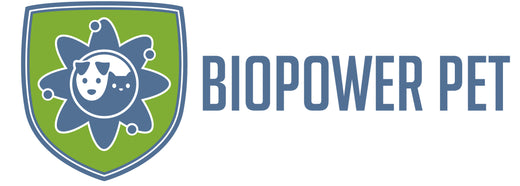Holistic vs Conventional Pet Care: A Comparative Study

Every pet parent wants the best for their furry family members and, just like any other member of the family, their health and well-being are a top priority. But since our pets can't verbalize their concerns we need to look for other signals and patterns to help us understand how they're feeling, the symptoms they may be presenting, and offer the best solutions for preventive and urgent care.
Helping your pet live their best life might require an alternative approach to health and wellness and more pet parents are turning to holistic therapies when conventional care becomes inadequate to meet their pet's needs. But is it right for you and your pet? In this article, we will compare the two types of approaches to healthcare for your pet and you can decide.
The Basics of Holistic Pet Care
The holistic approach to your pet's health is about taking a well-rounded and complete approach to care by considering the physical, emotional, and psychological aspects of their well-being. It's no secret, of course, that your pet needs plenty of activity and exercise. All veterinarians will tell you that. But the holistic approach places an emphasis on mental and emotional stimulation in a home free of stress and anxiety, and providing diet and nutrition that values the pet's individuality and focuses on the specificity of that pet's nutritional requirements instead of simply filling a bowl of food.
Careful consideration is given to maintaining and improving the pet's well-being in the following ways:
Healthy Diet
Your pet depends on you for meeting their nutritional requirements. A domesticated dog or cat can't rely on their hunting skills to feed, so you need to supply them with the next best thing. A diet regimen that offers the necessary nutrients, vitamins, minerals, and other dietary factors that promote healthy body weight, heart health, and support your pet's vital bodily systems including the cardiovascular, circulatory, digestive, and nervous systems.
A proper holistic diet is one that avoids low grade fillers, artificial preservatives, artificial coloring and flavors, and processed ingredients that can be unhealthy for your pet. Choosing high-quality, natural foods that cater to your pet's particular species, breed, and overall health are far more beneficial for your pet's nutritional intake and wellness in the long run. Dogs and cats are carnivores, so they thrive on a diet of fresh meat and low carbohydrates.
Physical Activity
Along with good nutrition, exercise is one of the most important components of your pet's well-being. A holistic approach to care incorporates physical activity and exercise into the pet's wellness agenda as they work in conjunction with proper diet to prevent obesity and undue stress on the joints, and to promote cardiovascular and mental health. Pets that get a lot of exercise are happier and more vibrant. When they can enjoy the exercise by your side or during playtime even at home or in the backyard, that physical activity time is even more beneficial as it promotes positive mental and emotional wellness.
When you play with your pet, it helps strengthen your emotional bond and triggers a mental stimulus of warmth and happiness. How do you feel when you get to enjoy some play time with your pet? Your pet enjoys that same positive emotional response.
Emotional and Psychological Well-being
Speaking of emotional response, a happier pet is a healthier pet. Anything you can do to promote positive emotional and psychological wellness is going to benefit your pet's overall health. Take your dog on a walk or grab a toy for your cat and enjoy some playtime together. Mental stimulation in a supportive environment can do wonders for your pet's mental health.
Holistic care places a strong importance on your pet's emotional and psychological state because a depressed or bored pet leads to destructive and negative behaviors which can lead to stress, anxiety, and could signal other health concerns.
Safe and Nurturing Living Space
Reducing stress and anxiety begins at home and when your pet has a stress-free environment that reduces the risk of negative health outcomes and fosters positive reinforcement, you're giving your pet a greater chance for a better life.
Be cognizant of your pet's boundaries and offer a safe and comfortable area where your pet can go to enjoy some quiet time and personal space, alone from others when needed. Pets also need routines and discipline. Set and maintain times for feeding meals each day and going on walks so your pet can learn that you have established a schedule. If your cat is scratching the couch, be firm but avoid anger and loud shouting to correct the behavior.
All of these actions contribute to your pet's health and wellness by avoiding stress and anxiety and encouraging good behavior.
Natural Therapy Alternatives
Conventional medicines, therapies, and preventive treatments can often rely too much on chemicals, compounds, and other harsh or caustic substances that might make you wonder if the cure is worse than the sickness. Some of these common medications have side effects or pose potential risks to the digestive system or even cause stress and anxiety when trying to administer them to your pet. We've all tried to get a dog or cat to swallow a pill or stay still for eye drops more than once. The same goes for getting your pet to sit still when applying a flea and tick control topical medication between the shoulder blades. Good luck. If you miss the spot, your pet just ends up licking the flea medication from their wet fur, and is it really a good idea to have your pet licking that stuff?
Staying with the flea and tick medications, an excellent example of a natural alternative is using a Natural Flea and Tick repellent
that doesn't rely on pesticides, poisons, or stringent aromatics, but instead offers effective results using bio-energetic frequencies. You just hang it on your pet's existing collar and the stainless steel tag embedded with bioresonance technology emits frequencies that fleas, ticks, and mosquitoes don't like, driving them away and keeping them from returning to your pet for a full year.The Basics of Conventional Pet Care
Conventional or traditional pet care relies more heavily on targeting the symptoms through direct intervention in the form of antibiotics, medications, vaccinations, and drugs that may not always be in the pet's best interest.
This is not to suggest that conventional medicines and the veterinarians who practice traditional care are lesser quality or ineffective. Far from it.
Diagnostics
Batteries of tests and panels are useful for creating diagnoses and identifying the issues, but when those causes are determined, the solution is often developed after the fact. The conventional approach does not emphasize preventive care in the form of nutrition or consideration of other facets of the pet's lifestyle.
Yes, veterinarians work to make your pet feel better and remain free of the afflictions that are causing pain and discomfort for the long-term. However, there are differences in the approach between holistic and conventional care that pet parents should be aware of when deciding how to go forward with keeping their pets safe and healthy.
When your pet has an infection or presents signs of a virus or rubbing at one of their eyes which has started to ooze a little discharge, your veterinarian has a wide range of tools at his or her disposal for getting to the root of the matter. We’ve all been there, anxiously awaiting the results of a blood test or an eye stain so your furry friend can get on the road to recovery.
Prescription Drugs and Medications
Once the test results are back, your veterinarian will explain what’s wrong and how to solve the issue. In most every case, your vet will typically prescribe something. An antibiotic to eliminate the infection, a pain medication in the event there are high levels of discomfort that your pet is suffering, or topical creams or drops that are composed of a litany of strange compounds and ingredients that you can’t pronounce much less spell to eliminate the problem.
In many cases, these are the best ways to make your pet feel better and ensure a full recovery. But these options do not always represent the full menu of possibilities for treatment. Veterinarians are not often trained in using holistic or homeopathic remedies, some may not believe in them or ignore these choices because they aren’t as effective in their view.
Taking a holistic approach to your pet’s care and wellness puts the onus on you, the pet parent, to ask your veterinarian to provide these additional alternative remedies, if viable and effective in each particular case, to treat the problem. Holistic therapies may not always be the best option in some situations but that’s where preventive care can make a bigger impact in a holistic sense. Always consult with your veterinarian about the use of holistic therapies alongside conventional medicines for treating your pet’s condition.
Emergencies and Surgery
When your pet has an emergency or needs major surgery, conventional medicine is usually the best option for saving your pet’s life after an accident or some type of medical emergency where the pet’s life and safety are at risk. Holistic care can play a supplemental role in most cases, typically during the recovery and healing process.
One Size Fits All Nutrition
Conventional pet care does not always take into account the specific needs of the pet with respect to appropriate nutrition on a case by case basis. Veterinarians will certainly offer guidance in what to look for and look out for when reading the ingredients on a bag of dry kibble. But even those so-called healthy diets and weight maintenance formulas don’t always provide the best choice for giving your pet the nutrients and minerals they need.
These one-size-fits-all bags of dry food and wet food cans and pouches are mass-marketed food options that make promises they may not always keep. So be careful when buying your pet’s food from one of the well-known brands that pay a lot for marketing departments and brand awareness, you might not be getting the best quality food for your pet in particular.
The Choice is Yours
Your pet is counting on you for the best possible care. So which type of care do you plan to provide? This article can give you suggestions and guidelines and not every pet needs the same type of care. Taking a 100% holistic approach may be ideal for some pets while others may require a mix of the two. As always, listen to a vet you trust and ask the necessary questions before making any major care decisions that can impact your pet’s health and well-being for the long term.
If your pet is currently on a medication, do not stop administering it without first seeking your vet’s input and asking if holistic alternatives can be just as effective or play a complementary role in keeping your pet healthy and happy.

